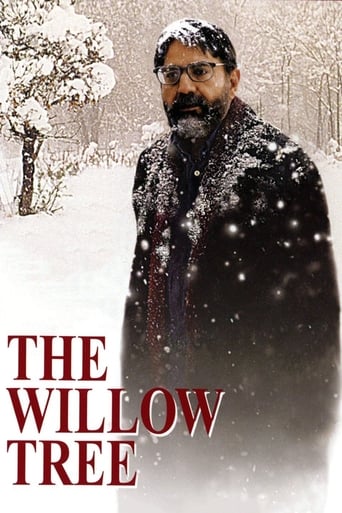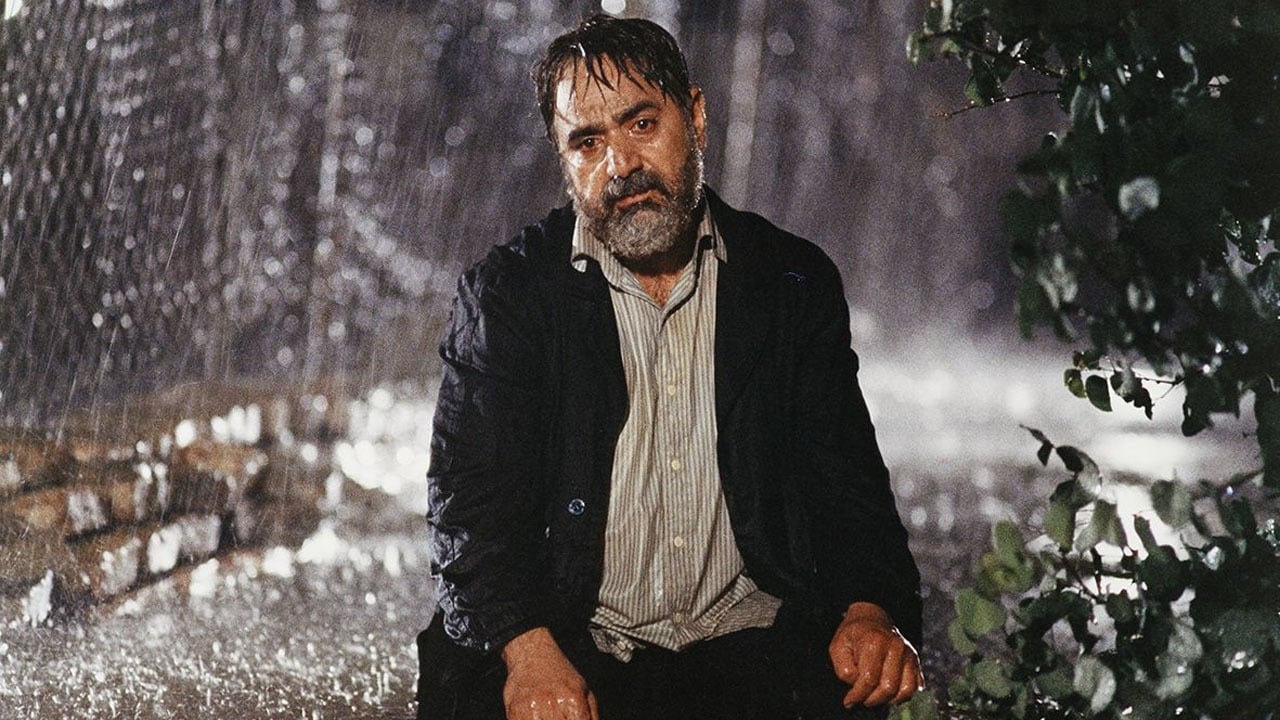Tejas Nair
Never have I seen such a topic on-reel. And Majid Majidi does it with finesse, cooked up with traces of sentiments and etching up emotions into a beautiful layer of life lesson.The Willow Tree talks about a taciturn, blind professor and his lives, before and after a surgery that changes his life forever. Before, he is calm and loving. He loves his family & work. Then comes life values and when God puts him on test, things go pumping and wrecking. What brought luck to him, snatches all his glorious memories and turns him into something he never thought he'd become.The plot goes heavy on the darker and duller side towards the end, depicting how life can turn upside down, if we slip the path once. Chiefly, it talks about the dangers of life that we want or never ever dreamed of. Lots of thing depicted, lots of things to learn, this film is a perfect blend of life and interpretation. It cannot be debated as to why the divine power creates things as they are and this story gives us a promising insight. Cast is so beautifully active, the message is brightly conveyed. Music is very good.BOTTOM LINE: Majidi is a master and as like all his films, this one is another feather in his hat.Profanity/Vulgarity/Sex/Porn: No | Violence: Mediocre | Gore/Alcohol/Smoking: No | Gore: Mediocre
elsinefilo
Majid Majidi's Willow Tree tells the story of Yusuf (Parvis Parastui) who was blinded in a fireworks accident when he was eight. Though he has been deprived of light and brightness for so long, he has a lovable, caring wife and a lovely daughter. After 38 years of blindness, Yusuf has a tumor beneath his eye so he goes to a Paris clinic to get some tests. Doctors do a several tests and they do cornea transplant on his eyes. The man who has lived in darkness and gloom for so long can't wait for the bandages to be taken off in the morning and he removes them himself.After his eyes catch the light the first thing he enjoys watching is an ant carrying a tiny bit of food across the window bar which is actually a diligent worker, a servant of God which can carry something as big as itself and never protests and surrenders to its role that is cut out for itself. Parvis Parastui's performance as Yusuf who walks in a gleeful hesitation, in an unsteady childish hobbling down the hospital corridor without needing anyone for the first time after 38 years,is just a cinematic tour-de-force which can't be forgotten easily. After he is back in Iran Yusus tries to grapple with the new life he asked from God. Apparently his small paradise of four trees and a house is shattered by the perceptional difference he has seen in the real world and the understanding,thankful,spiritually protected world he had himself with God. The temptation creeps in and the serenity he had in his gloom disappears.He feels attracted to Peri (Leila Otadi), his uncle's young,ravishing,stunning wife.With a transformed sense of moral obligation,another day he overlooks a pickpocket snatching somebody's wallet in a public transport vehicle. Yusuf who seem to have lost all his connection with his God, with his comparative serenity estranges his caring wife and dear mother too.All alone,while his eyes starting not to respond to the transplantation he seems to have lost his sight again. He gets a letter from his the man he met at the clinic in Paris,A man who was gradually losing his sight because of some shrapnel in his head from the Iraq/Iran war. In the letter says the man: "Tell me what's worth seeing and I'll tell you what's not worth seeing.Ever since I've practiced not seeing, I've seen many wonderful things. How much have you been seeing? Are your eyes satisfied? Did you see the willow tree? I'd like to know if it still brings you luck?" Embittered by his own transformation, Yusuf finds the note he put between the pages of the Masnavi (by Rumi)on which he wrote:""I'm the one you deprived of the beauties of the world and who never complained. Instead of light and brightness, I lived in darkness and gloom and I didn't protest. I found happiness and peace in this small paradise. Are all these years of suffering not enough that you now want to cause me even more suffering? Will I come back from this trip to my loving family? Will this illness bring me to my knees? To whom should I complain about what you are doing to me? I beg of you to show me more compassion. Don't take my life away." Knowing that his biggest mistake was not knowing God well, he asks for a new chance hoping that God has not crossed him off his own book of compassion book and the diligent worker ant reappears. Majid Majidi could be a great director indeed but what you will remember after seeing this movie will be the unforgettable performance of Parvis Parastui overshadowing everyone else about this movie.
martonejames
I have been deeply moved by "The Willow Tree," which I saw this evening as part of an Iranian film series at the Freer Gallery in Washington DC. I am not sure that any Western culture could ever produce something as beautiful, but I hope all westerners see it. It has impressed positively and permanently. I was most moved by the scene of the hero coming back to Iran, and seeing his mother, and then again, when the mother comes to his house after his wife has left. The most beautiful, was our hero looking for the papers in the pond, and finding that special one. The ending is magnificent, as it allows us to ponder which is better, to continue blind, or be blessed again with sight. But in either case he seems condemned. Thank you. James
Carl
Cinema began as a purely visual medium. The shock and fright that the Lumière brothers caused in their virgin audience came about because seeing the world through the lens of a camera is like seeing for the first timewitness Dziga Vertov's 1929 paean to the new medium, Man With a Movie Camera, and you get a sense of this fascination. Thus, film is perfectly suited to director Majid Majidi's exploration in The Willow Tree of a blind man regaining his sight. After a quietly foreboding passage of voice-over, the movie opens its eyes on a scene of sylvan innocence, with a father and his young daughter racing sticks down a stream. We soon learn that the father, Youssef, a university professor, is blind. At home, his wife, Roya, sits and translates pages of texts into Braille for him. When he sits down to read them in his courtyard, a sudden gust of wind blows them away and Roya has to scramble across the garden to retrieve them, while Youssef grasps desperately at whatever he can feel near him. He is cared for, he is loved, and loves in return but we are given a sense of his dependence, his powerlessness in the face of nature's occasional rushes. Having flown to Paris to treat a possible cancer under his eye, he undergoes a cornea transplant that should restore his sight, which he lost when he was 8 years old. In a tremulously powerful section of the movie, Youssef impatiently peels back the padding around his eyes to the shocking sensation of light. Still with the carefully lifted feet of a blind man, he pads excitedly into the hospital corridor as a single tear of blood falls from his still- scarred eyes. It is a moment of subtle horrorafter all, a new sense is terrifying. The Willow Tree is unrelenting cinema. It challenges our notion of perception and gives us the visceral rush of seeing as though for the first time. When Youssef returns to Iran he is greeted by a crowd of family and friends. In a scene that will stay with me for a very long time, the soundtrack drops away as Youssef looks at these faces without recognitionwhich one is Roya? Is it the beautiful young woman with the video camera? Youssef hopes so. And there is the tragedywith all this renewed sensation, the reference points of the past need to be realigned, the world which satisfies the other senses might not satisfy the eyes, and in that moment at the airport, Majidi brings to bear both the revelatory joy of the new and the plummeting realisation of how much was lacking before. As Youssef, Parviz Parastui is astonishing. It is his performance, as well as that of Afarin Obeisi as his mother, that lifts The Willow Tree above anyone reproaching it with sentimentality. It is a deeply religious film, in the best sense of the worda moral fable that is not moralistic.


 AD
AD



